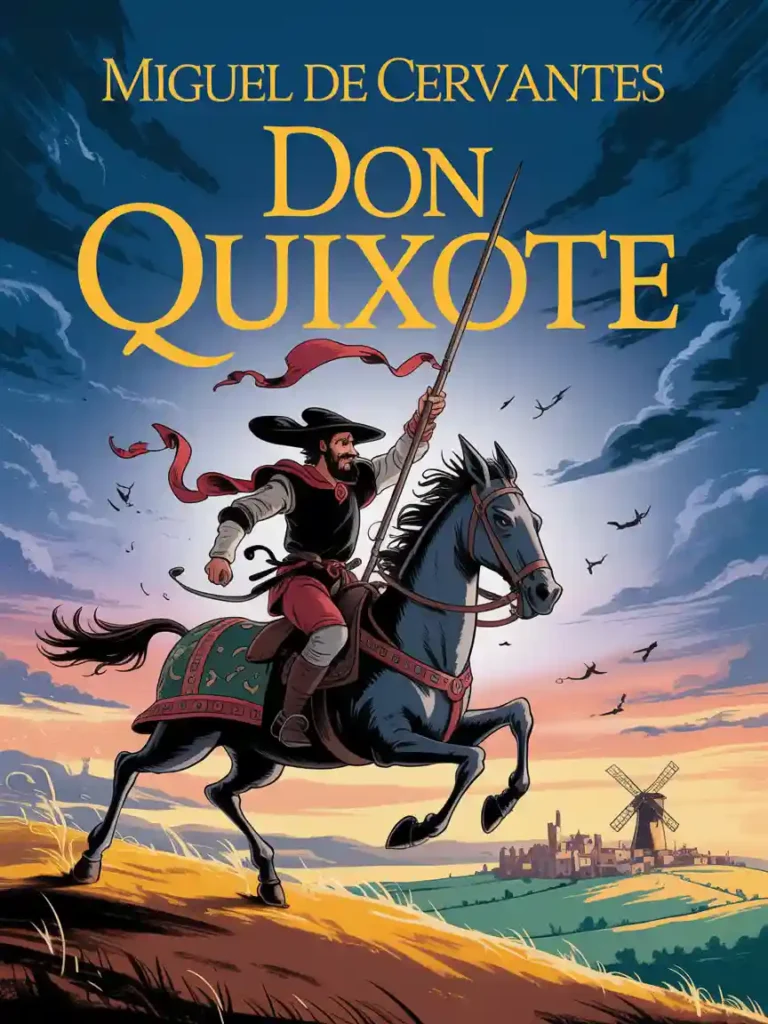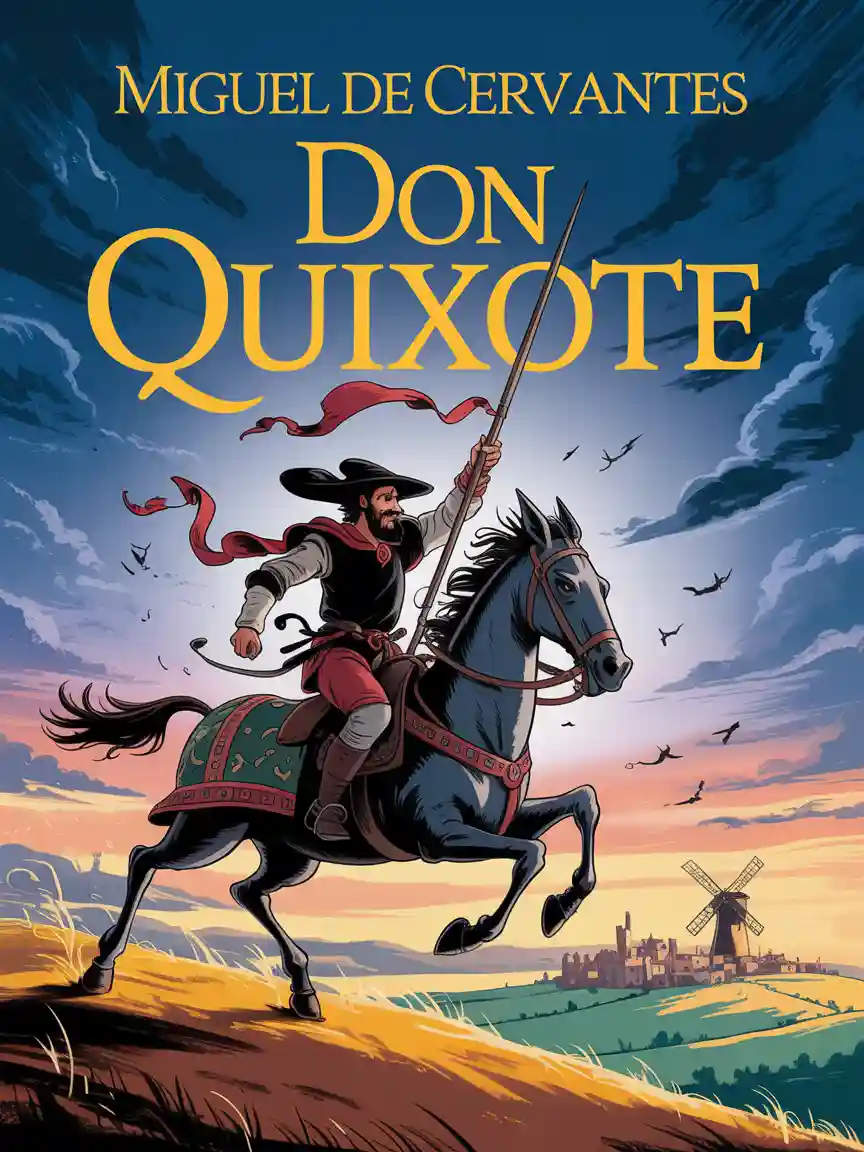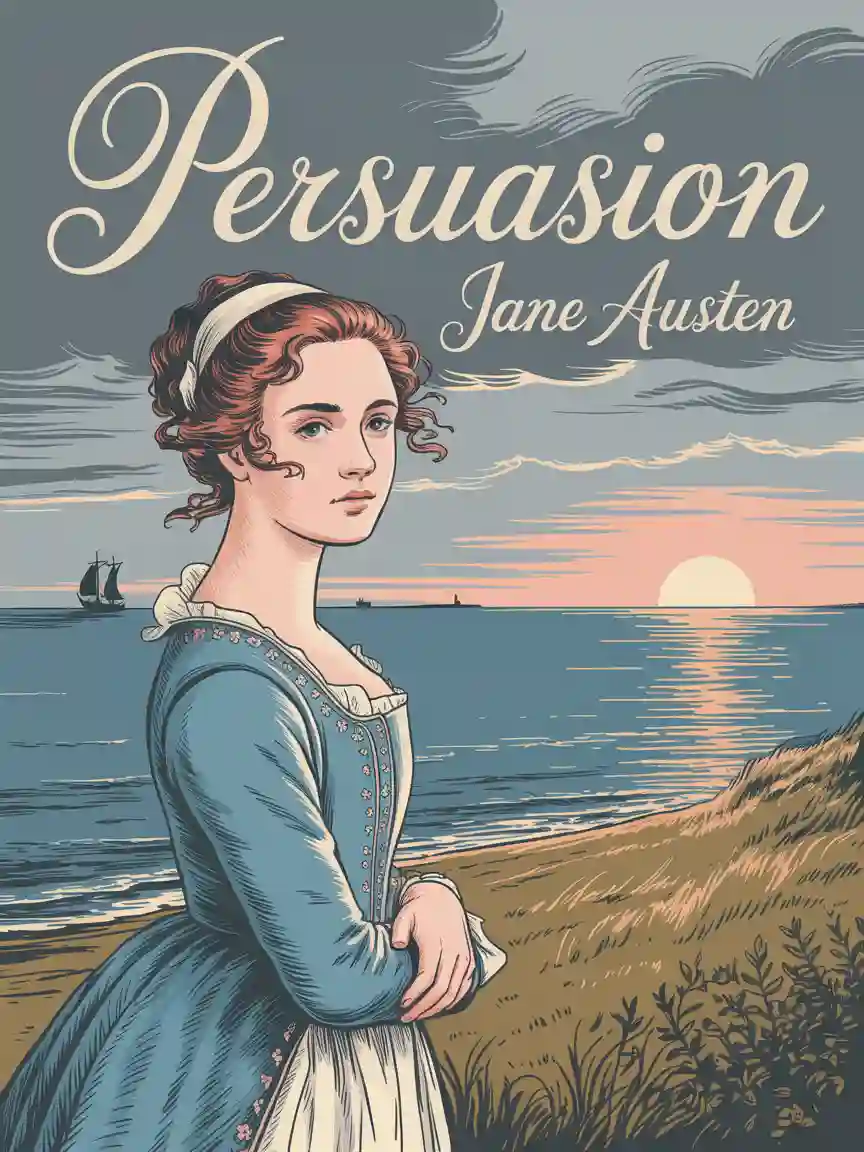CHAPTER 39
WHEREIN THE CAPTIVE RELATES HIS LIFE AND ADVENTURES
My family had its origin in a village in the mountains of Leon, and nature
had been kinder and more generous to it than fortune; though in the general
poverty of those communities my father passed for being even a rich man;
and he would have been so in reality had he been as clever in preserving his
property as he was in spending it. This tendency of his to be liberal and pro-
fuse he had acquired from having been a soldier in his youth, for the sol-
dier’s life is a school in which the niggard becomes free-handed and the
free-handed prodigal; and if any soldiers are to be found who are misers,
they are monsters of rare occurrence. My father went beyond liberality and
bordered on prodigality, a disposition by no means advantageous to a mar-
ried man who has children to succeed to his name and position. My father
had three, all sons, and all of sufficient age to make choice of a profession.
Finding, then, that he was unable to resist his propensity, he resolved to di-
vest himself of the instrument and cause of his prodigality and lavishness,
to divest himself of wealth, without which Alexander himself would have
seemed parsimonious; and so calling us all three aside one day into a room,
he addressed us in words somewhat to the following effect:
“My sons, to assure you that I love you, no more need be known or said
than that you are my sons; and to encourage a suspicion that I do not love
you, no more is needed than the knowledge that I have no self-control as far
as preservation of your patrimony is concerned; therefore, that you may for
the future feel sure that I love you like a father, and have no wish to ruin
you like a stepfather, I propose to do with you what I have for some time
back meditated, and after mature deliberation decided upon. You are now of
an age to choose your line of life or at least make choice of a calling that
will bring you honour and profit when you are older; and what I have re-
solved to do is to divide my property into four parts; three I will give to
you, to each his portion without making any difference, and the other I will
retain to live upon and support myself for whatever remainder of life Heav-
en may be pleased to grant me. But I wish each of you on taking possession
of the share that falls to him to follow one of the paths I shall indicate. In
this Spain of ours there is a proverb, to my mind very true—as they all are,
being short aphorisms drawn from long practical experience—and the one I
refer to says, ‘The church, or the sea, or the king’s house;’ as much as to say,
in plainer language, whoever wants to flourish and become rich, let him fol-
low the church, or go to sea, adopting commerce as his calling, or go into
the king’s service in his household, for they say, ‘Better a king’s crumb than
a lord’s favour.’ I say so because it is my will and pleasure that one of you
should follow letters, another trade, and the third serve the king in the wars,
for it is a difficult matter to gain admission to his service in his household,
and if war does not bring much wealth it confers great distinction and fame.
Eight days hence I will give you your full shares in money, without de-
frauding you of a farthing, as you will see in the end. Now tell me if you are
willing to follow out my idea and advice as I have laid it before you.”
Having called upon me as the eldest to answer, I, after urging him not to
strip himself of his property but to spend it all as he pleased, for we were
young men able to gain our living, consented to comply with his wishes,
and said that mine were to follow the profession of arms and thereby serve
God and my king. My second brother having made the same proposal, de-
cided upon going to the Indies, embarking the portion that fell to him in
trade. The youngest, and in my opinion the wisest, said he would rather fol-
low the church, or go to complete his studies at Salamanca. As soon as we
had come to an understanding, and made choice of our professions, my fa-
ther embraced us all, and in the short time he mentioned carried into effect
all he had promised; and when he had given to each his share, which as well
as I remember was three thousand ducats apiece in cash (for an uncle of
ours bought the estate and paid for it down, not to let it go out of the
family), we all three on the same day took leave of our good father; and at
the same time, as it seemed to me inhuman to leave my father with such
scanty means in his old age, I induced him to take two of my three thousand
ducats, as the remainder would be enough to provide me with all a soldier
needed. My two brothers, moved by my example, gave him each a thousand
ducats, so that there was left for my father four thousand ducats in money,
besides three thousand, the value of the portion that fell to him which he
preferred to retain in land instead of selling it. Finally, as I said, we took
leave of him, and of our uncle whom I have mentioned, not without sorrow
and tears on both sides, they charging us to let them know whenever an op-
portunity offered how we fared, whether well or ill. We promised to do so,
and when he had embraced us and given us his blessing, one set out for
Salamanca, the other for Seville, and I for Alicante, where I had heard there
was a Genoese vessel taking in a cargo of wool for Genoa.
It is now some twenty-two years since I left my father’s house, and all
that time, though I have written several letters, I have had no news whatever
of him or of my brothers; my own adventures during that period I will now
relate briefly. I embarked at Alicante, reached Genoa after a prosperous
voyage, and proceeded thence to Milan, where I provided myself with arms
and a few soldier’s accoutrements; thence it was my intention to go and take
service in Piedmont, but as I was already on the road to Alessandria della
Paglia, I learned that the great Duke of Alva was on his way to Flanders. I
changed my plans, joined him, served under him in the campaigns he made,
was present at the deaths of the Counts Egmont and Horn, and was promot-
ed to be ensign under a famous captain of Guadalajara, Diego de Urbina by
name. Some time after my arrival in Flanders news came of the league that
his Holiness Pope Pius V of happy memory, had made with Venice and
Spain against the common enemy, the Turk, who had just then with his fleet
taken the famous island of Cyprus, which belonged to the Venetians, a loss
deplorable and disastrous. It was known as a fact that the Most Serene Don
John of Austria, natural brother of our good king Don Philip, was coming as
commander-in-chief of the allied forces, and rumours were abroad of the
vast warlike preparations which were being made, all which stirred my
heart and filled me with a longing to take part in the campaign which was
expected; and though I had reason to believe, and almost certain promises,
that on the first opportunity that presented itself I should be promoted to be
captain, I preferred to leave all and betake myself, as I did, to Italy; and it
was my good fortune that Don John had just arrived at Genoa, and was go-
ing on to Naples to join the Venetian fleet, as he afterwards did at Messina. I
may say, in short, that I took part in that glorious expedition, promoted by
this time to be a captain of infantry, to which honourable charge my good
luck rather than my merits raised me; and that day—so fortunate for Chris-
tendom, because then all the nations of the earth were disabused of the error
under which they lay in imagining the Turks to be invincible on sea-on that
day, I say, on which the Ottoman pride and arrogance were broken, among
all that were there made happy (for the Christians who died that day were
happier than those who remained alive and victorious) I alone was miser-
able; for, instead of some naval crown that I might have expected had it
been in Roman times, on the night that followed that famous day I found
myself with fetters on my feet and manacles on my hands.
It happened in this way: El Uchali, the king of Algiers, a daring and suc-
cessful corsair, having attacked and taken the leading Maltese galley (only
three knights being left alive in it, and they badly wounded), the chief gal-
ley of John Andrea, on board of which I and my company were placed,
came to its relief, and doing as was bound to do in such a case, I leaped on
board the enemy’s galley, which, sheering off from that which had attacked
it, prevented my men from following me, and so I found myself alone in the
midst of my enemies, who were in such numbers that I was unable to resist;
in short I was taken, covered with wounds; El Uchali, as you know, sirs,
made his escape with his entire squadron, and I was left a prisoner in his
power, the only sad being among so many filled with joy, and the only cap-
tive among so many free; for there were fifteen thousand Christians, all at
the oar in the Turkish fleet, that regained their longed-for liberty that day.
They carried me to Constantinople, where the Grand Turk, Selim, made
my master general at sea for having done his duty in the battle and carried
off as evidence of his bravery the standard of the Order of Malta. The fol-
lowing year, which was the year seventy-two, I found myself at Navarino
rowing in the leading galley with the three lanterns. There I saw and ob-
served how the opportunity of capturing the whole Turkish fleet in harbour
was lost; for all the marines and janizzaries that belonged to it made sure
that they were about to be attacked inside the very harbour, and had their
kits and pasamaques, or shoes, ready to flee at once on shore without wait-
ing to be assailed, in so great fear did they stand of our fleet. But Heaven
ordered it otherwise, not for any fault or neglect of the general who com-
manded on our side, but for the sins of Christendom, and because it was
God’s will and pleasure that we should always have instruments of punish-
ment to chastise us. As it was, El Uchali took refuge at Modon, which is an
island near Navarino, and landing forces fortified the mouth of the harbour
and waited quietly until Don John retired. On this expedition was taken the
galley called the Prize, whose captain was a son of the famous corsair Bar-
barossa. It was taken by the chief Neapolitan galley called the She-wolf,
commanded by that thunderbolt of war, that father of his men, that success-
ful and unconquered captain Don Alvaro de Bazan, Marquis of Santa Cruz;
and I cannot help telling you what took place at the capture of the Prize.
The son of Barbarossa was so cruel, and treated his slaves so badly, that,
when those who were at the oars saw that the She-wolf galley was bearing
down upon them and gaining upon them, they all at once dropped their oars
and seized their captain who stood on the stage at the end of the gangway
shouting to them to row lustily; and passing him on from bench to bench,
from the poop to the prow, they so bit him that before he had got much past
the mast his soul had already got to hell; so great, as I said, was the cruelty
with which he treated them, and the hatred with which they hated him.
We returned to Constantinople, and the following year, seventy-three, it
became known that Don John had seized Tunis and taken the kingdom from
the Turks, and placed Muley Hamet in possession, putting an end to the
hopes which Muley Hamida, the cruelest and bravest Moor in the world,
entertained of returning to reign there. The Grand Turk took the loss greatly
to heart, and with the cunning which all his race possess, he made peace
with the Venetians (who were much more eager for it than he was), and the
following year, seventy-four, he attacked the Goletta and the fort which
Don John had left half built near Tunis. While all these events were occur-
ring, I was labouring at the oar without any hope of freedom; at least I had
no hope of obtaining it by ransom, for I was firmly resolved not to write to
my father telling him of my misfortunes. At length the Goletta fell, and the
fort fell, before which places there were seventy-five thousand regular
Turkish soldiers, and more than four hundred thousand Moors and Arabs
from all parts of Africa, and in the train of all this great host such munitions
and engines of war, and so many pioneers that with their hands they might
have covered the Goletta and the fort with handfuls of earth. The first to fall
was the Goletta, until then reckoned impregnable, and it fell, not by any
fault of its defenders, who did all that they could and should have done, but
because experiment proved how easily entrenchments could be made in the
desert sand there; for water used to be found at two palms depth, while the
Turks found none at two yards; and so by means of a quantity of sandbags
they raised their works so high that they commanded the walls of the fort,
sweeping them as if from a cavalier, so that no one was able to make a stand
or maintain the defence.
It was a common opinion that our men should not have shut themselves
up in the Goletta, but should have waited in the open at the landing-place;
but those who say so talk at random and with little knowledge of such mat-
ters; for if in the Goletta and in the fort there were barely seven thousand
soldiers, how could such a small number, however resolute, sally out and
hold their own against numbers like those of the enemy? And how is it pos-
sible to help losing a stronghold that is not relieved, above all when sur-
rounded by a host of determined enemies in their own country? But many
thought, and I thought so too, that it was special favour and mercy which
Heaven showed to Spain in permitting the destruction of that source and
hiding place of mischief, that devourer, sponge, and moth of countless mon-
ey, fruitlessly wasted there to no other purpose save preserving the memory
of its capture by the invincible Charles V; as if to make that eternal, as it is
and will be, these stones were needed to support it. The fort also fell; but
the Turks had to win it inch by inch, for the soldiers who defended it fought
so gallantly and stoutly that the number of the enemy killed in twenty-two
general assaults exceeded twenty-five thousand. Of three hundred that re-
mained alive not one was taken unwounded, a clear and manifest proof of
their gallantry and resolution, and how sturdily they had defended them-
selves and held their post. A small fort or tower which was in the middle of
the lagoon under the command of Don Juan Zanoguera, a Valencian gentle-
man and a famous soldier, capitulated upon terms. They took prisoner Don
Pedro Puertocarrero, commandant of the Goletta, who had done all in his
power to defend his fortress, and took the loss of it so much to heart that he
died of grief on the way to Constantinople, where they were carrying him a
prisoner. They also took the commandant of the fort, Gabrio Cerbellon by
name, a Milanese gentleman, a great engineer and a very brave soldier. In
these two fortresses perished many persons of note, among whom was
Pagano Doria, knight of the Order of St. John, a man of generous disposi-
tion, as was shown by his extreme liberality to his brother, the famous John
Andrea Doria; and what made his death the more sad was that he was slain
by some Arabs to whom, seeing that the fort was now lost, he entrusted
himself, and who offered to conduct him in the disguise of a Moor to Tabar-
ca, a small fort or station on the coast held by the Genoese employed in the
coral fishery. These Arabs cut off his head and carried it to the commander
of the Turkish fleet, who proved on them the truth of our Castilian proverb,
that “though the treason may please, the traitor is hated;” for they say he or-
dered those who brought him the present to be hanged for not having
brought him alive.
Among the Christians who were taken in the fort was one named Don Pe-
dro de Aguilar, a native of some place, I know not what, in Andalusia, who
had been ensign in the fort, a soldier of great repute and rare intelligence,
who had in particular a special gift for what they call poetry. I say so be-
cause his fate brought him to my galley and to my bench, and made him a
slave to the same master; and before we left the port this gentleman com-
posed two sonnets by way of epitaphs, one on the Goletta and the other on
the fort; indeed, I may as well repeat them, for I have them by heart, and I
think they will be liked rather than disliked.
The instant the captive mentioned the name of Don Pedro de Aguilar,
Don Fernando looked at his companions and they all three smiled; and
when he came to speak of the sonnets one of them said, “Before your wor-
ship proceeds any further I entreat you to tell me what became of that Don
Pedro de Aguilar you have spoken of.”
“All I know is,” replied the captive, “that after having been in Constan-
tinople two years, he escaped in the disguise of an Arnaut, in company with
a Greek spy; but whether he regained his liberty or not I cannot tell, though
I fancy he did, because a year afterwards I saw the Greek at Constantinople,
though I was unable to ask him what the result of the journey was.”
“Well then, you are right,” returned the gentleman, “for that Don Pedro is
my brother, and he is now in our village in good health, rich, married, and
with three children.”
“Thanks be to God for all the mercies he has shown him,” said the cap-
tive; “for to my mind there is no happiness on earth to compare with recov-
ering lost liberty.”
“And what is more,” said the gentleman, “I know the sonnets my brother
made.”
“Then let your worship repeat them,” said the captive, “for you will recite
them better than I can.”
“With all my heart,” said the gentleman; “that on the Goletta runs thus.”





